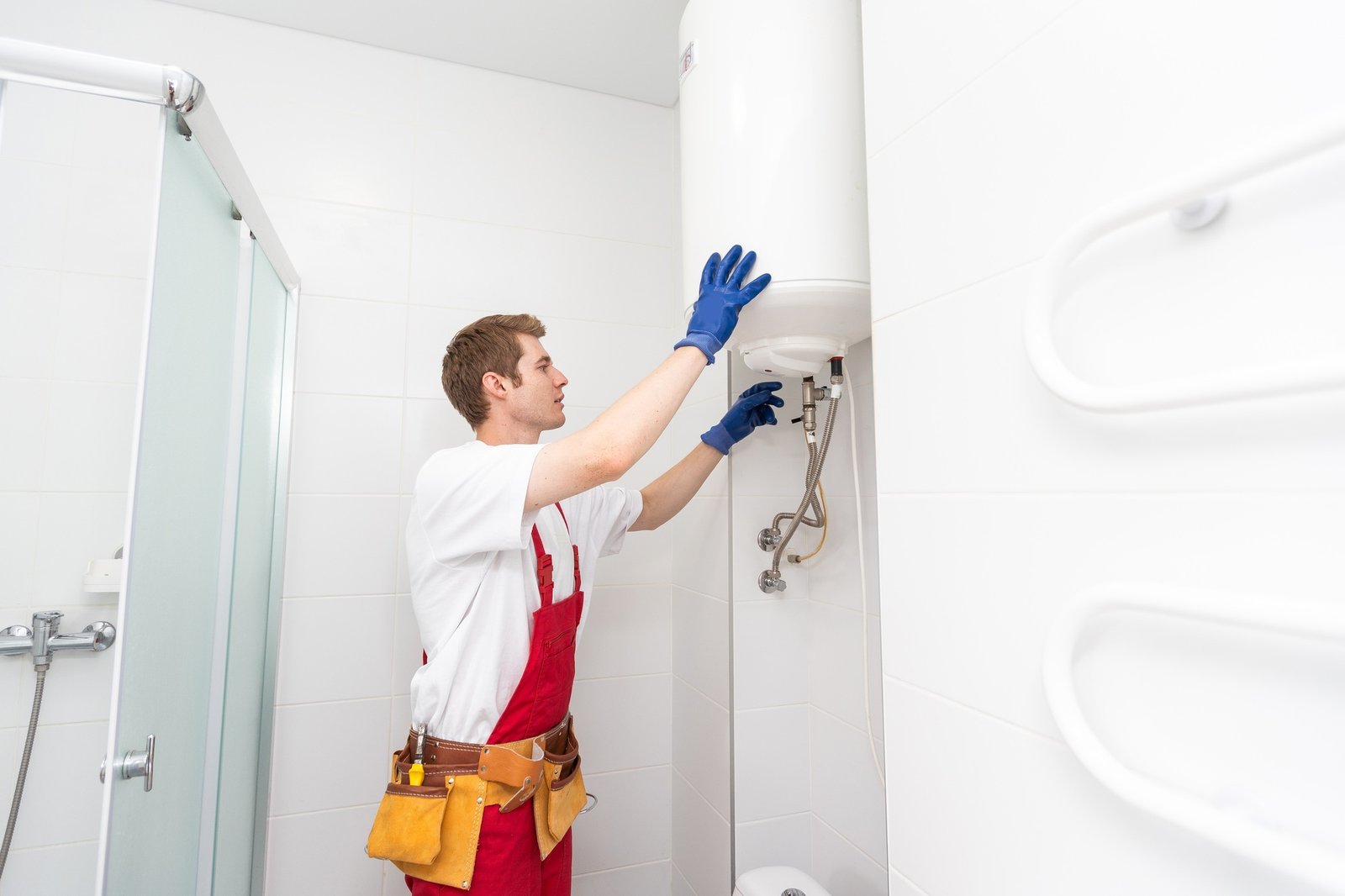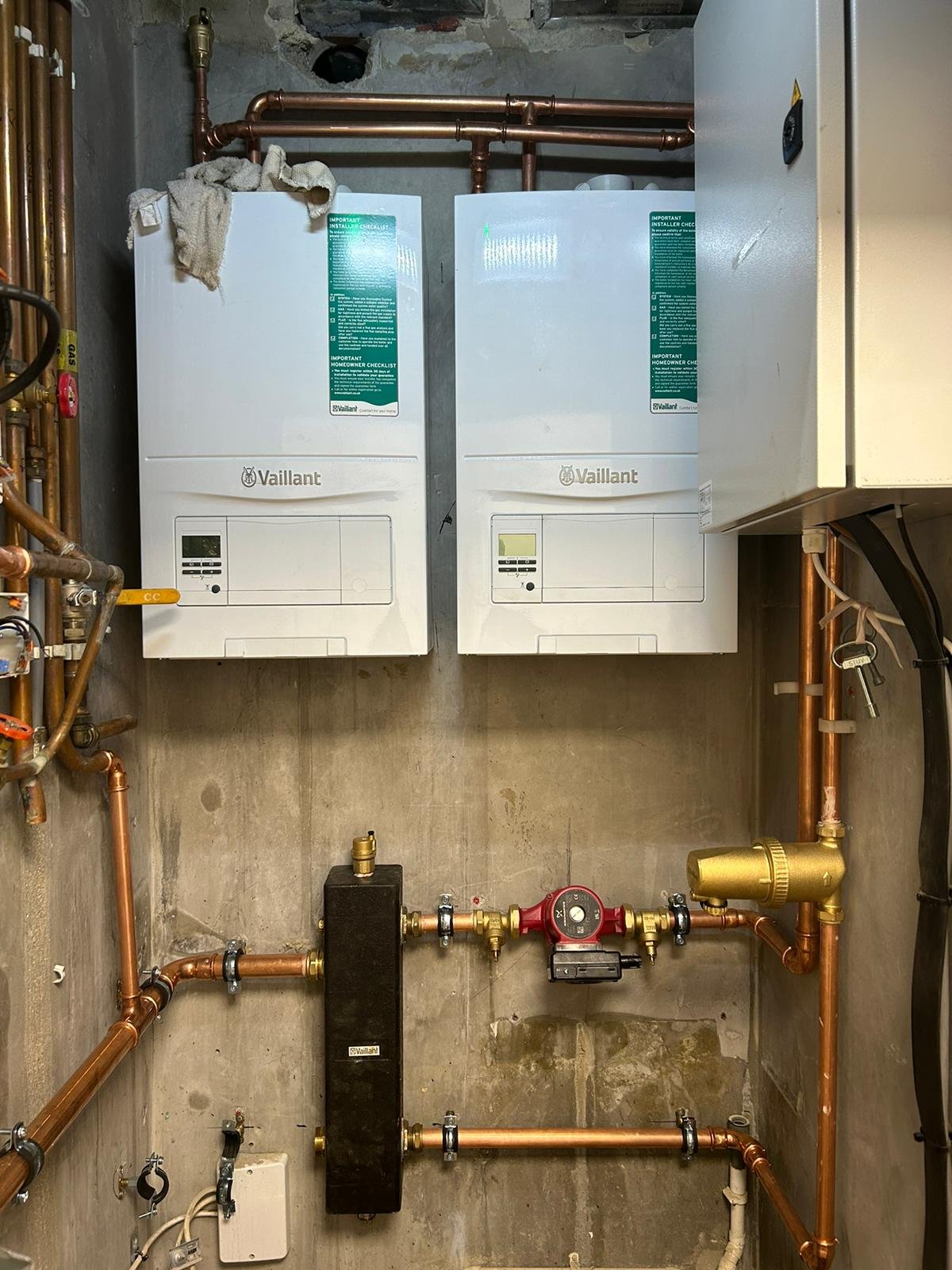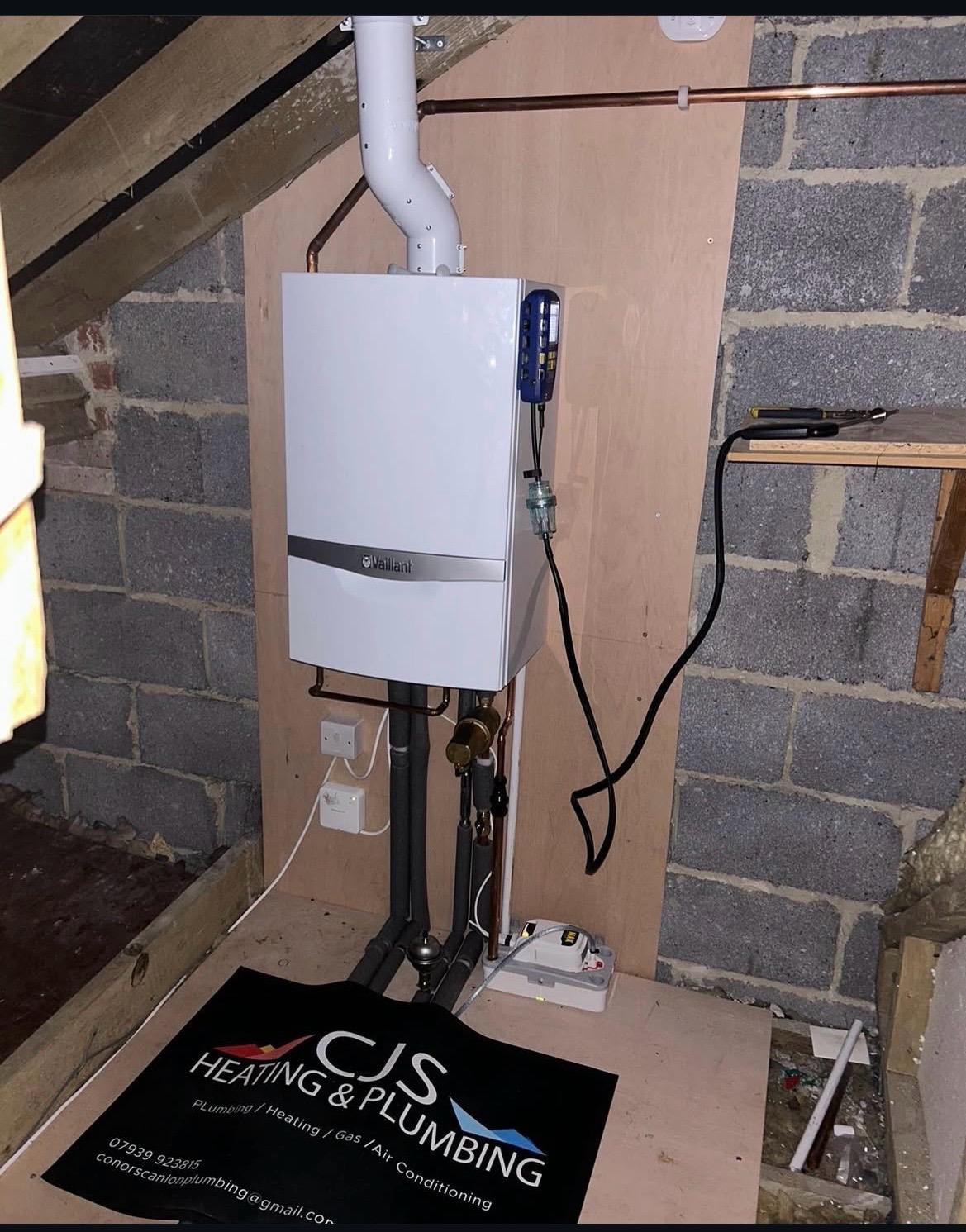Yes, landlords must have a gas safety certificate. It is not just a formality, but a legal requirement designed to protect tenants and property. Complying with gas safety rules is crucial for avoiding fines, legal action, and, most importantly, ensuring the wellbeing of everyone living in your property. This guide explains the laws, landlord responsibilities, exceptions, and practical ways to stay compliant and confident while keeping tenants safe.
For professional support, contact CJS Heating & Plumbing to book a service or inspection and ensure your property meets all gas safety requirements.
What Is a Gas Safety Certificate?
A Gas Safety Certificate, also called a Landlord Gas Safety Record or CP12, is more than just a piece of paper. It is proof that every gas appliance, flue, and pipework in a rental property has been inspected and deemed safe for use. The certificate is issued after a qualified engineer completes a gas safety check and confirms compliance with safety regulations.
This document is vital not only for legal compliance but also for demonstrating diligence to tenants, property managers, and insurers. It shows you are committed to their safety and reduces your liability should an accident occur.
Gas Safety Laws: What Landlords Need to Know
The Gas Safety (Installation and Use) Regulations 1998 lay out the legal obligations for landlords in the UK. These rules exist to prevent gas leaks, explosions, and carbon monoxide poisoning. Under these regulations, landlords must:
- Ensure all gas appliances, pipework, and flues are maintained in a safe condition.
- Conduct an annual gas safety check by a qualified Gas Safe registered engineer.
- Keep a record of the inspection and issue a safety certificate to tenants within 28 days of the check.
Non-compliance can result in significant fines, imprisonment, or civil claims in the event of an accident.
Annual Gas Safety Check vs. Gas Safety Certificate
It is important to differentiate between the inspection process and the document itself:
- Annual Gas Safety Check: This is the physical inspection carried out by a certified engineer. It includes testing boilers, cookers, and other gas appliances for leaks, damage, or faulty operation.
- Landlord Gas Safety Record (Certificate): This is the official document issued after the check. It confirms the property is safe to rent and lists any defects or recommendations.
Both are essential components of responsible property management.
Who Needs a Gas Safety Certificate?
Gas safety rules apply to a wide range of landlords and property managers, including:
- Private landlords renting residential properties.
- Letting agents managing multiple properties.
- Social housing providers.
- Property management companies overseeing rental units.
Even if you only rent out a single property, failing to have a valid gas safety certificate is a serious breach of the law.
The Hidden Benefits of Compliance
Beyond legal obligations, regular gas safety checks build tenant trust, protect the value of your property, and reduce liability. Tenants are more likely to stay and respect your property when they see their safety is a priority.
For peace of mind and professional assistance, CJS Heating & Plumbing provides expert inspections, servicing, and certification for landlords and property managers. You can book a gas safety check today and ensure your property is fully compliant, safe, and ready for tenants.
Do Landlords Have to Have a Gas Safety Certificate? (What the Law Actually Says)
If you are a landlord in the UK with gas appliances in a rental property, it’s essential to understand your legal obligations. A gas safety certificate is not just a piece of paper; it is a legal requirement under the Gas Safety (Installation and Use) Regulations 1998. Failing to comply can result in hefty fines, legal action, and, most importantly, serious safety risks for tenants.
Below, we break down exactly what landlords need to know about gas safety requirements, inspections, and certificates to ensure compliance and protect their tenants.
The Direct Answer
Yes. Every landlord with gas appliances in a rented property must have a valid gas safety certificate. This certificate must be renewed every 12 months and reflects that all required safety checks have been carried out by a qualified engineer. It serves as an official record proving the property meets safety standards.
Legal Obligations in Detail
Landlords are legally obliged to ensure all gas appliances, flues, chimneys, and pipework are checked annually by a Gas Safe registered engineer. The inspections verify that the appliances operate safely and efficiently. The gas safety record must include:
- Appliance details and condition
- Any defects or recommended repairs
- Engineer’s signature and Gas Safe registration number
Landlords must also provide tenants with a copy of the certificate within 28 days of inspection or before a new tenant moves in. Tenants have the right to access the property for these inspections, and landlords must arrange the appointment.
Frequency and Renewal Windows
A gas safety certificate is valid for 12 months from the date of inspection. Landlords can have the inspection carried out up to 2 months early without affecting the renewal date. This flexibility helps landlords plan ahead and avoid last-minute rushes.
When It’s Not Required
There are a few scenarios where a gas safety certificate is not mandatory:
- Properties that are fully electric
- Gas appliances owned by tenants, though the connecting pipework still requires inspection
- Certain long leases or rent-to-buy arrangements
Even in these cases, landlords should always carry out appropriate safety checks to maintain a good safety record and ensure tenants remain safe.
Overlooked Technicalities
It is important to note the difference between a Gas Safe registered engineer and a general installer. Only inspections carried out by Gas Safe engineers are legally valid for the certificate. Additionally, both digital and paper certificates are legally acceptable as long as they are complete, accurate, and signed.
A real-life example highlights the importance: a landlord was fined for failing to issue the gas safety record to tenants despite having the inspection done. This shows that compliance is not just about performing the inspection, it is also about proper documentation and communication.
How Landlords Can Stay Compliant Without the Stress
Managing a rental property comes with many responsibilities, and one of the most critical is ensuring compliance with safety regulations. While it can feel overwhelming, staying on top of legal obligations does not have to be stressful. By following a structured routine, landlords can protect their tenants, avoid penalties, and maintain their properties efficiently.
One key requirement is the gas safety record. Every gas appliance in a rental property must be inspected annually by a Gas Safe registered engineer, and a valid gas safety certificate must be issued. This is more than paperwork, it is about protecting tenants from serious risks such as carbon monoxide exposure, leaks, or faulty appliances.
Step-by-Step Guide to Staying Compliant
1. Verify Your Engineer
Before any inspection, check your engineer’s Gas Safe ID and confirm the appliance type they are certified to service. This ensures all safety checks are carried out by a qualified professional and your certificate is valid.
2. Schedule Inspections Early
Do not wait until the last minute. Schedule inspections well before the expiry month to avoid gaps in coverage. Early scheduling also allows time to address any issues the engineer might find.
3. Notify Tenants
Landlords are legally required to give 24-hour written notice before entering a property. Clear communication prevents disputes and ensures tenants feel respected and informed.
4. Keep Accurate Records
Maintain both digital and printed copies of all gas safety records for at least two years. This protects you in case of disputes or audits and provides proof of compliance.
5. Provide Latest Records
- Give new tenants a copy before move-in.
- Provide existing tenants with the latest record within 28 days of the inspection.
Pro Tips for Stress-Free Compliance
- Use calendar reminders or property management apps to track inspection dates and certificate renewals.
- Combine inspections where possible, gas, electrical, and EPC checks, to save time and simplify scheduling.
- Keep detailed maintenance logs. If tenants deny access, you can show that reasonable effort was made to conduct necessary safety checks.
Following these steps not only keeps landlords compliant but also promotes tenant safety and peace of mind. Properly managing gas safety records and ensuring annual inspections can prevent serious hazards like carbon monoxide poisoning and demonstrate your commitment to safety regulations.
Penalties, Risks & the Real Cost of Non-Compliance
For landlords, maintaining landlord gas and electrical safety standards is not just a legal formality. It is a vital responsibility that protects tenants, property, and the landlord’s reputation. Ignoring these obligations can lead to serious financial, legal, and personal consequences. Understanding the full scope of the risks highlights why keeping up-to-date safety certificates and complying with regulations is essential.
Legal and Financial Consequences
Non-compliance can carry severe penalties. Landlords without valid gas safety certificates may face unlimited fines, and in extreme cases, up to six months imprisonment. Additionally, failing to maintain safety compliance can invalidate Section 21 notices, preventing landlords from regaining possession of their property legally.
Insurance coverage is also affected. Many landlord insurance policies require proof of valid safety certificates for gas and electrical installations. If a claim arises and certificates are missing, insurers may refuse to cover damage, leaving landlords financially exposed. Similarly, letting licence renewals can be delayed or refused without proof of compliance, directly affecting rental income.
A sobering real-life example shows the consequences of negligence: a landlord was prosecuted after tenants suffered carbon monoxide poisoning due to a neglected boiler. This case underscores the potential for devastating legal and reputational damage when safety is ignored.
Tenant Awareness
Tenants today are more informed about their rights than ever. They can report landlords directly to the Health and Safety Executive (HSE) if they believe gas or electrical safety standards are not being met. Failure to act on these reports can result in investigations, fines, or court proceedings. Maintaining up-to-date gas safety certificates and conducting regular electrical safety checks ensures that landlords stay compliant and demonstrate a proactive commitment to tenant safety.
FAQs
What if my tenant refuses entry? Landlords should provide reasonable notice for inspections and document all attempts to access the property. Persistent refusal should be escalated to the relevant authorities.
Can I issue the certificate late? No. All certificates must be current and renewed annually to comply with regulations.
Does a holiday let count as a rental? Yes. Any property offered for temporary accommodation falls under the same landlord gas and electrical safety obligations as long-term rentals.
Myth-Busting
There are common misconceptions among landlords that can lead to risk:
- “I only need a gas safety certificate if renting to non-family tenants.” False. Legal obligations apply to all tenants, including friends and family.
- “Electrical checks are optional.” False. Annual electrical safety inspections are required to meet regulations.
- “I can rely on old certificates.” False. Certificates expire and must be renewed to remain valid.
Ignoring these myths not only exposes landlords to fines and prosecution but also puts tenants at serious risk.
Easy Steps to Avoid Fines and Legal Risks
Staying on top of landlord gas and electrical safety doesn’t have to be stressful. CJS Heating & Plumbing makes it easy with professional boiler installations, repairs, and servicing, plus full central heating maintenance and emergency plumbing for residential, commercial, and industrial properties.
We help landlords stay compliant with up-to-date safety certificates and gas safety certificates, keeping tenants safe and avoiding costly fines or legal issues. With our team on your side, you can have peace of mind knowing your property is well-maintained and fully protected.
Reach out today, call 07939 923815 or email info@cjs-heatingandplumbing.co.uk, and let us help you keep your properties safe, efficient, and worry-free.





